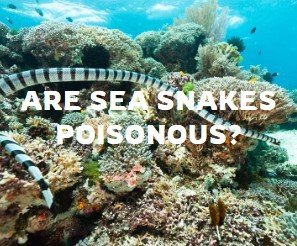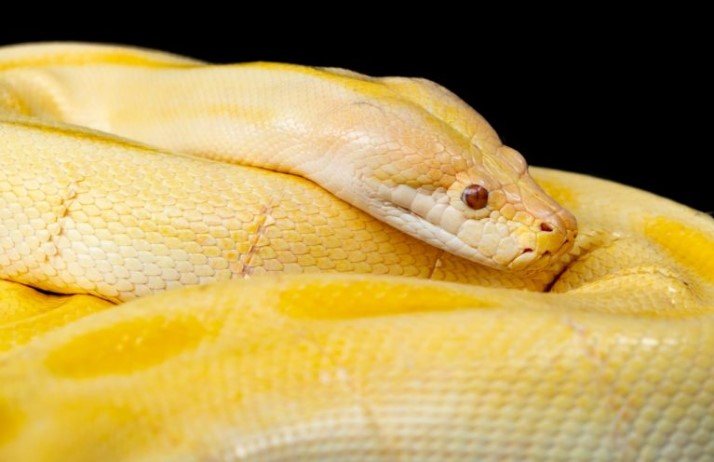Navigating the Waters: Are Sea Snakes Truly Poisonous?
Intro:
Sea snakes, inhabitants of the ocean’s depths, are captivating creatures with adaptations that allow them to thrive in aquatic environments. As we delve into the world of sea snakes, the question arises: Are they truly poisonous, and what role do they play in marine ecosystems?

1. Unique Adaptations:
Sea snakes are a group of venomous snakes specially adapted for life in the sea. With flattened tails for swimming and valved nostrils allowing them to breathe while submerged, they are well-suited for an aquatic lifestyle.
2. Venomous Arsenal:
Sea snakes are indeed venomous. They possess potent venom designed for subduing and immobilizing underwater prey. While their venom is effective against fish and other marine life, sea snake bites on humans are rare.
3. Venom Composition:
Sea snake venom is primarily neurotoxic, affecting the nervous system. The potency of their venom varies between species, with some having more potent venom than others. Despite their venomous nature, sea snakes are generally docile and not prone to aggression.
4. Underwater Predators:
Sea snakes primarily feed on fish and eels. Their ability to hunt and navigate underwater is facilitated by specialized adaptations, including a laterally compressed body for efficient swimming.
5. Unique Reproductive Strategies:
Sea snakes exhibit fascinating reproductive strategies. Some species give birth to live young at sea, while others return to land to lay eggs. This diversity in reproductive behaviors contributes to their adaptation to different marine environments.
6. Threats and Conservation:
Despite their remarkable adaptations, sea snakes face threats such as habitat degradation, pollution, and accidental capture in fishing gear. Conservation efforts +are essential to protect these unique reptiles and maintain the balance of marine ecosystems.
7. Interaction with Humans:
Sea snake bites on humans are rare, as these snakes are generally not aggressive and often avoid contact. However, due to the potential toxicity of their venom, any bite should be treated as a medical emergency.
Conclusion:
In conclusion, sea snakes are both fascinating and integral to marine ecosystems. While they are indeed venomous, their interactions with humans are minimal, emphasizing the importance of understanding and conserving these remarkable creatures for the health of our oceans.
Learn more about what do Corn Snakes eat.




Leave a Reply